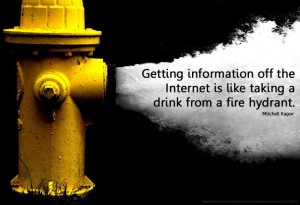With the world constantly changing at a rapid pace, very often we see articles posted on the “most useful degrees†and “the most useless degrees†of our times. The Liberal Arts degree has gotten very bad press in the last few years, considered to be ambiguous and not in depth enough to serve any particular field and therefore ultimately not job defined. In other words, it may not guarantee you a “good jobâ€.
However, despite the bad press, liberal arts degrees are still popular because unlike job defined degrees, liberal arts degrees offer a set of diverse skills that are ultimately transferable across various fields. Â They are solid general education degrees which provide a basis for almost any future career choice or graduate-level degree.
British columnist and economist John Kay, writing in the Financial Times of London makes an excellent case that students need to be trained in synthesis more than anything else in today’s world.
Why synthesis? Because we live in an Information age and we are bombarded with data from all angles. Forget noise pollution, we have now “data pollutionâ€. As John Kay states: “Every piece of knowledge ever known to man is at hand on a screen near you. So the problem isn’t finding information, it’s knowing how to link different bits of knowledge, to “make connections between disparate sources of information,†.
Having a liberal arts degree teaches you to synthesize, summarize, compare, contrast etc and take bits from all sources. Â Job specific skills and degrees are indispensable for fields that rely heavily on them (such as accounting), however, it becomes almost necessary to master skills necessary to tackle data that comes full throttle through our doors if we ought to survive the information era. The recipe for rounded success seems to rely on combining a liberal arts degree with job specific training to provide a firm foundation of mixed skills.
With globalization now an inherent part of our lives, making connections with others, with the world and with society has become imperative in surviving our complex, evolving and ever changing world.




